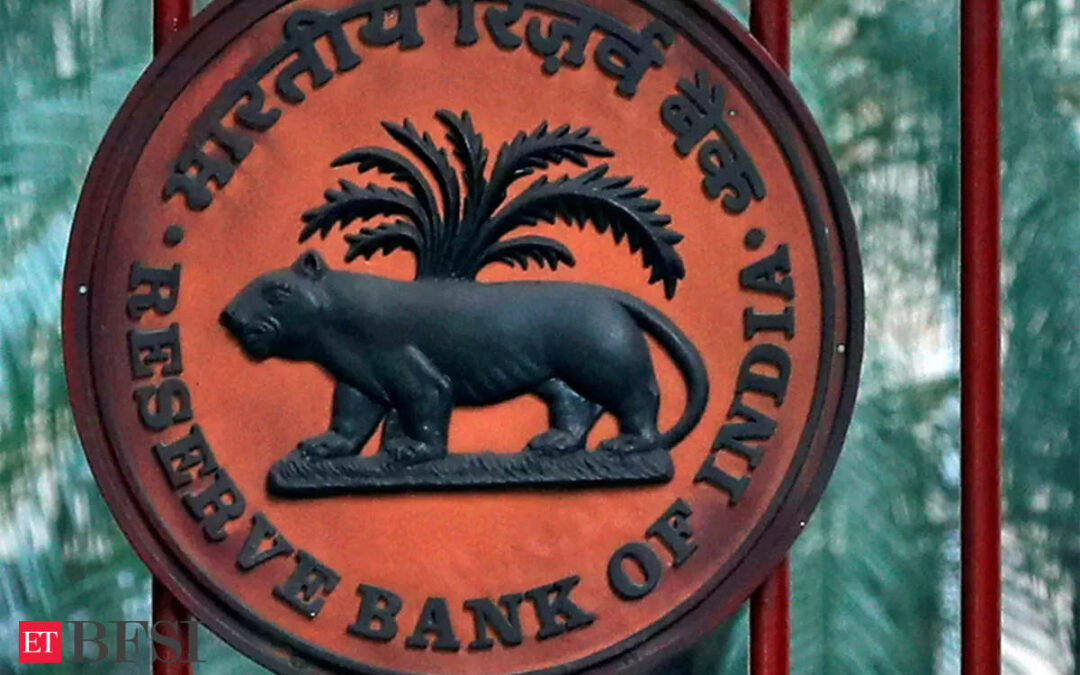MUMBAI: The Reserve Bank of India (RBI) will meet banks to sort out the grey areas in overseas investment (OI) regulations which have stalled the plans of several wealthy Indians, business families, and startups from taking exposures to foreign securities, funds and companies.
Can a resident individual subscribe to an ‘unregulated’ fund in Singapore? Can a local startup buy into a fintech firm abroad? Is a high-net-worth (HNI) individual barred from holding fixed deposits in an offshore bank? Will an Indian company holding a minority stake, but having no ‘control’, in a foreign company have to walk the extra mile on compliance? For months many Indians, keen to diversify their assets and execute business strategies, have been looking for unequivocal answers to a slew of such questions.
Besides, clearing the fog on such matters would help individuals and companies avoid any violation of the Foreign Exchange Management Act (FEMA).
The central bank has asked leading authorised dealer banks, who handle the transfer of money for such offshore investments, to identify the issues. Officials of RBI’s Overseas Investment Department are scheduled to meet bankers this week, two persons aware of the matter told ET. Bankers and practitioners believe it would mark a beginning in resolving some of the issues which have been hanging fire for over a year.
Ever since new regulations were announced by the RBI in mid-2022, ambiguities have cropped up with banks taking different stands based on interpretations of their respective compliance departments. Some of the remittance proposals have also been stalled by banks in the wake of a widely shared perception that there is discomfort among the authorities in allowing large outflows.
“The OI Rules and Regulations lack clarity on quite a few issues – primarily due to there being no FAQs issued by the finance ministry or RBI to date. While some of these issues have received clarity through some of the AD banks or RBI officials, it would be better to have an official circular or FAQs so that investors at large have full clarity,” said Rutvik Sanghvi, partner at the CA firm Rashmin Sanghvi & Associates.
The key issues, according to Sanghvi, which “require clarification in black and white are understanding of the permitted number of subsidiaries in case of round-tripped structures; definition of ‘control’ and ‘real estate activity’; investment in overseas ‘unregulated’ mutual funds with regulated fund managers; arm’s length concept in pricing guidelines where transactions are between unrelated entities; investment in foreign startups where there is no law governing startups in the host country. There are other open issues specific to resident individuals related to investment in fixed deposits vis-a-vis prohibition on ‘unlisted debt’; application of FCRA to foreign securities received as a gift; setting up family offices either outside India or through IFSC; apart from issues on amendments made under LRS.”
Besides, authorities are yet to clear the air over setting up a family office by setting up a family investment fund in GIFT City. Many HNIs are also unsure whether they can invest in funds in Singapore and the US where the manager of the fund is regulated but not the fund itself.
Overseas direct investment, or ODI, is one where a resident person holds more than 10% stake or exercises control over the overseas investee entity even with less than 10% holding. While other investments are largely categorised as overseas portfolio investments (OPI), even a nominal investment in an unlisted company can qualify as ODI. ODIs (unlike OPIs) have additional compliance and reporting requirements.
The paperwork is even more important when there is an element of control which is defined as the right to appoint majority shareholders or having a say on management and policy decisions. “However, banks are insisting on extra compliance when a resident plans to hold over 10% but has no control over the foreign company,” said another person.
Individuals invest abroad through RBI’s liberalised remittance scheme which allows $250,000 offshore investments in securities and immovable properties but not in unlisted debt. RBI is yet to clarify whether FDs are categorised as ‘unlisted debt’. Besides, such investors are required to bring back idle funds within six months, and many of them are failing to meet the minimum balance needed to keep bank accounts active.










